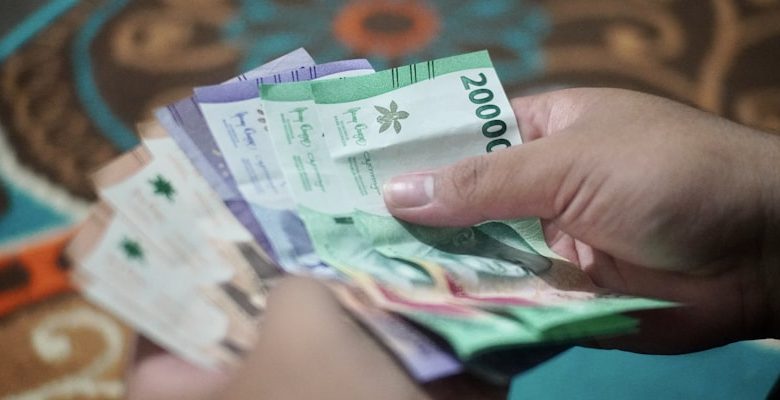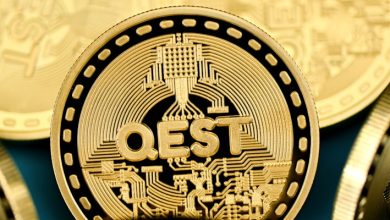The Impact of DeFi on Financial Inclusion

- Understanding Decentralized Finance (DeFi)
- Breaking Down the Barriers to Financial Inclusion
- Empowering the Unbanked Through DeFi
- Challenges and Opportunities in DeFi for Financial Inclusion
- The Role of DeFi in Bridging the Global Financial Divide
- Measuring the Social Impact of DeFi on Financial Inclusion
Understanding Decentralized Finance (DeFi)
Decentralized Finance (DeFi) is a revolutionary concept that aims to provide financial services without the need for traditional intermediaries like banks or financial institutions. DeFi utilizes blockchain technology to create a peer-to-peer financial system that is open, transparent, and accessible to anyone with an internet connection.
One of the key advantages of DeFi is its potential to increase financial inclusion by providing access to financial services for underserved populations. By leveraging decentralized networks, DeFi platforms can offer a wide range of financial products and services, such as lending, borrowing, trading, and investing, to individuals who may not have access to traditional banking services.
Moreover, DeFi platforms are typically more cost-effective than traditional financial services, as they eliminate the need for costly intermediaries and reduce transaction fees. This cost-efficiency makes DeFi an attractive option for individuals in developing countries or those with limited financial resources.
Overall, DeFi has the potential to democratize finance and empower individuals to take control of their financial futures. By providing access to a wide range of financial services in a decentralized and transparent manner, DeFi can help bridge the gap between the unbanked and the traditional financial system, ultimately promoting greater financial inclusion and economic empowerment for all.
Breaking Down the Barriers to Financial Inclusion
Breaking down the barriers to financial inclusion is crucial to ensuring that all individuals have access to the financial services they need to thrive. DeFi has the potential to revolutionize financial inclusion by providing a more accessible and inclusive financial system. One of the key barriers to financial inclusion is the lack of access to traditional banking services, particularly in underserved communities. DeFi can help bridge this gap by offering decentralized financial services that are accessible to anyone with an internet connection.
Another barrier to financial inclusion is the high cost of traditional banking services, which can make it difficult for low-income individuals to access the financial tools they need to improve their economic situation. DeFi offers a more affordable alternative to traditional banking, with lower fees and fewer barriers to entry. This can help more people access the financial services they need to save, invest, and build a better future for themselves and their families.
Additionally, many individuals are excluded from the traditional financial system due to a lack of identification or credit history. DeFi can help solve this problem by providing financial services that are based on blockchain technology, which can verify identities and track financial transactions without the need for traditional forms of identification. This can help more individuals access the financial system and build a credit history that can open up new opportunities for them in the future.
Overall, breaking down the barriers to financial inclusion is essential for creating a more equitable and inclusive financial system. DeFi has the potential to revolutionize financial inclusion by offering more accessible, affordable, and inclusive financial services to individuals around the world. By leveraging blockchain technology and decentralized networks, DeFi can help more people access the financial tools they need to improve their lives and build a more secure financial future.
Empowering the Unbanked Through DeFi
Decentralized Finance (DeFi) has the potential to empower individuals who are currently unbanked or underbanked by providing them with access to a wide range of financial services without the need for traditional banking institutions.
Through DeFi platforms, individuals can access services such as lending, borrowing, and trading using only a smartphone and an internet connection. This accessibility is crucial for those who have been excluded from the traditional financial system due to factors such as lack of documentation, high fees, or geographical barriers.
By utilizing DeFi, the unbanked can take control of their finances, build credit history, and participate in the global economy in ways that were previously unavailable to them. This newfound financial inclusion can have a transformative impact on their lives, providing them with opportunities for growth and prosperity.
Challenges and Opportunities in DeFi for Financial Inclusion
One of the main challenges in decentralized finance (DeFi) for financial inclusion is the lack of access to traditional banking services for many individuals around the world. DeFi has the potential to bridge this gap by providing alternative financial solutions that are accessible to anyone with an internet connection. However, there are still barriers to entry such as the need for reliable internet access and digital literacy.
On the other hand, DeFi presents numerous opportunities for improving financial inclusion. By leveraging blockchain technology, DeFi platforms can offer low-cost financial services such as lending, borrowing, and savings to unbanked and underbanked populations. This can help empower individuals to take control of their finances and participate in the global economy.
Furthermore, DeFi has the potential to reduce the dependency on traditional financial institutions and intermediaries, which can sometimes exclude certain groups of people from accessing financial services. Through smart contracts and decentralized applications, DeFi can enable peer-to-peer transactions and eliminate the need for intermediaries, making financial services more inclusive and efficient.
The Role of DeFi in Bridging the Global Financial Divide
Decentralized Finance (DeFi) plays a crucial role in bridging the global financial divide by providing access to financial services for individuals who are underserved or excluded from traditional banking systems. DeFi platforms leverage blockchain technology to create an open and inclusive financial ecosystem that allows users to access a wide range of financial products and services without the need for intermediaries.
One of the key advantages of DeFi is its ability to facilitate cross-border transactions at a lower cost and faster speed compared to traditional banking systems. This is particularly beneficial for individuals in developing countries who may not have access to traditional banking services or who are burdened by high fees and long processing times.
By using smart contracts and decentralized applications (dApps), DeFi platforms enable users to borrow, lend, trade, and invest in a permissionless and transparent manner. This not only empowers individuals to take control of their finances but also helps to reduce the reliance on centralized financial institutions that may have restrictive policies or discriminatory practices.
Furthermore, DeFi’s interoperability with other blockchain networks allows for the seamless integration of different financial services, creating a more efficient and accessible financial ecosystem for users around the world. As DeFi continues to evolve and expand, it has the potential to revolutionize the way we think about and interact with money, ultimately bridging the global financial divide and promoting greater financial inclusion for all.
Measuring the Social Impact of DeFi on Financial Inclusion
Measuring the social impact of decentralized finance (DeFi) on financial inclusion is crucial in understanding how this innovative technology is changing the landscape of traditional banking. By assessing the reach and effectiveness of DeFi in providing financial services to underserved populations, we can gain valuable insights into its potential to bridge the gap between the unbanked and the formal financial system.
One way to evaluate the impact of DeFi on financial inclusion is to analyze the number of new users accessing decentralized financial services. This metric can provide valuable information on the extent to which DeFi is expanding access to banking services for those who have been historically excluded from the traditional banking system.
Another important aspect to consider is the level of financial literacy among DeFi users. By measuring the knowledge and understanding of financial concepts among individuals utilizing decentralized financial services, we can assess the effectiveness of DeFi in empowering users to make informed financial decisions.
Additionally, evaluating the geographical distribution of DeFi users can shed light on its reach in different regions and communities. Understanding where DeFi is making the most impact can help policymakers and stakeholders target interventions and initiatives to further promote financial inclusion through decentralized finance.



